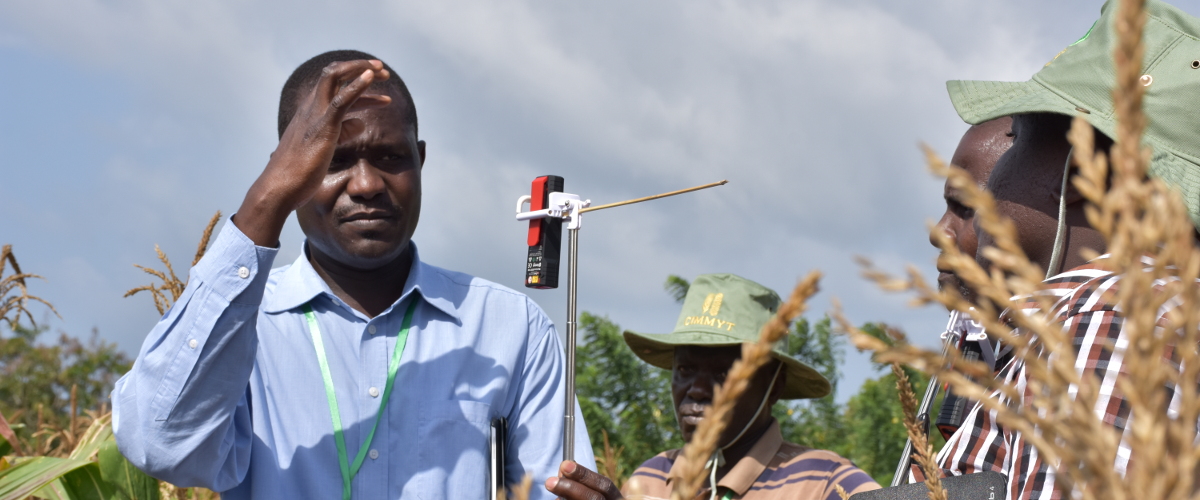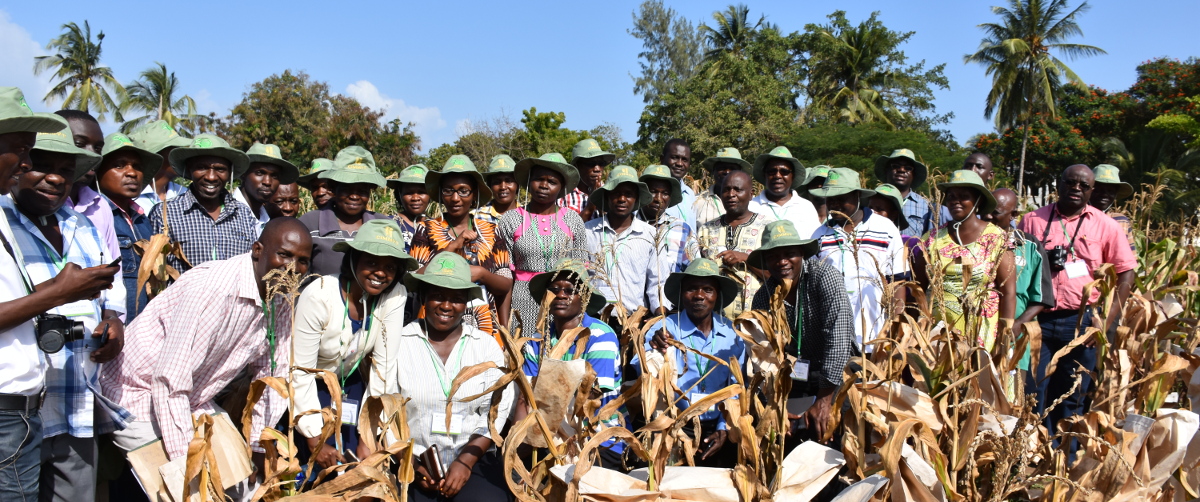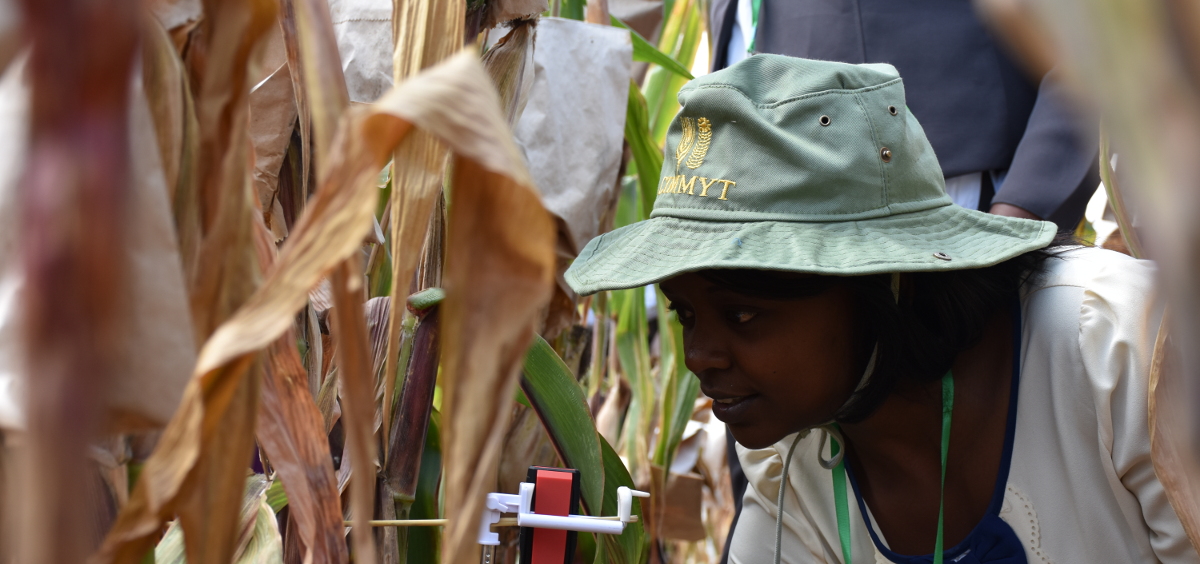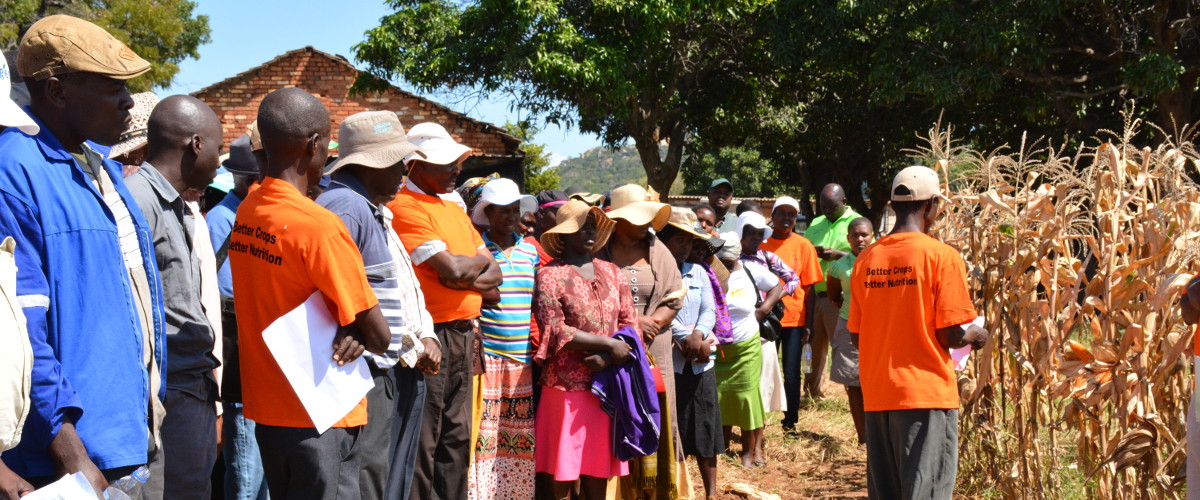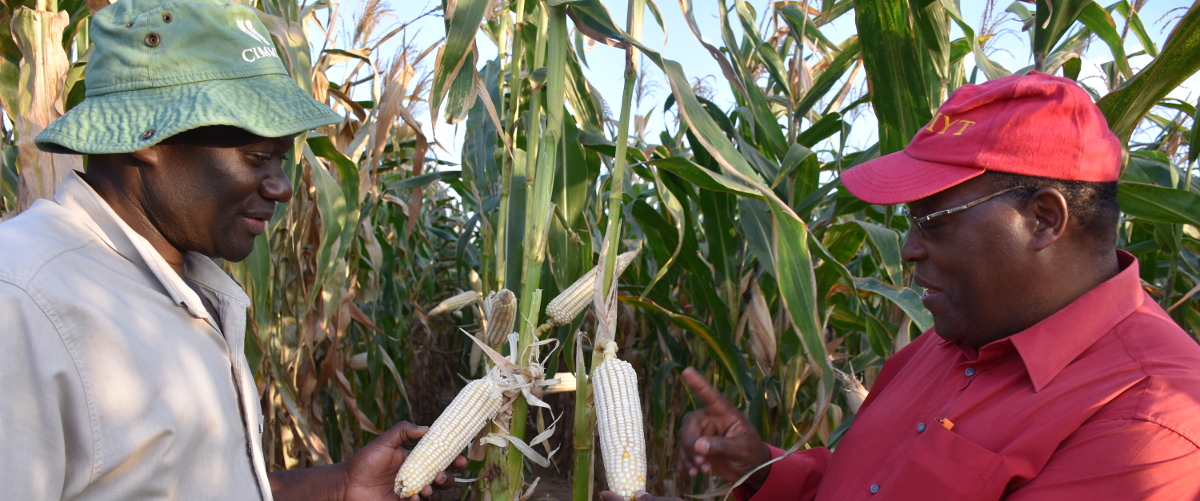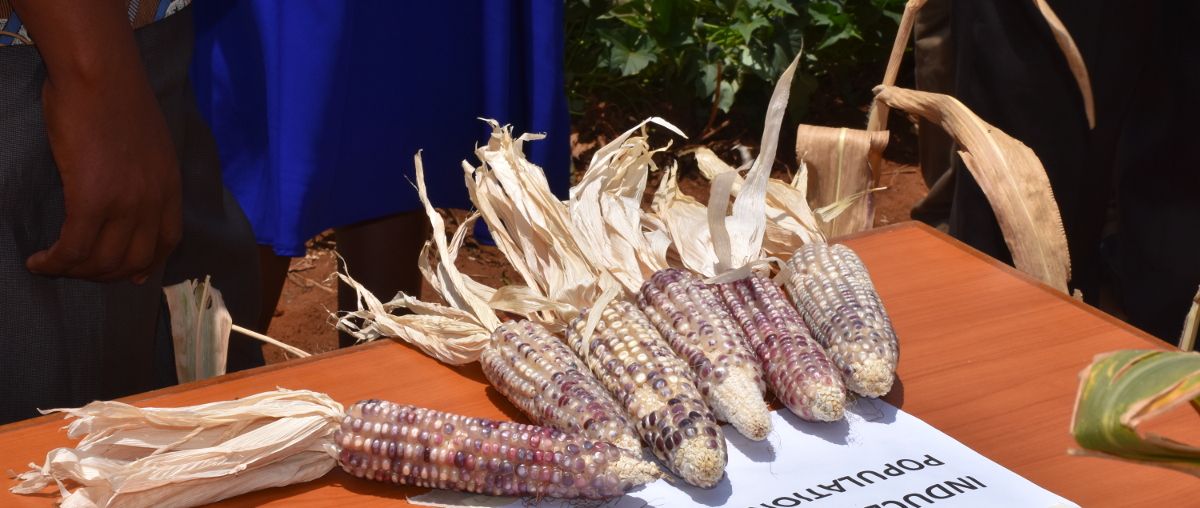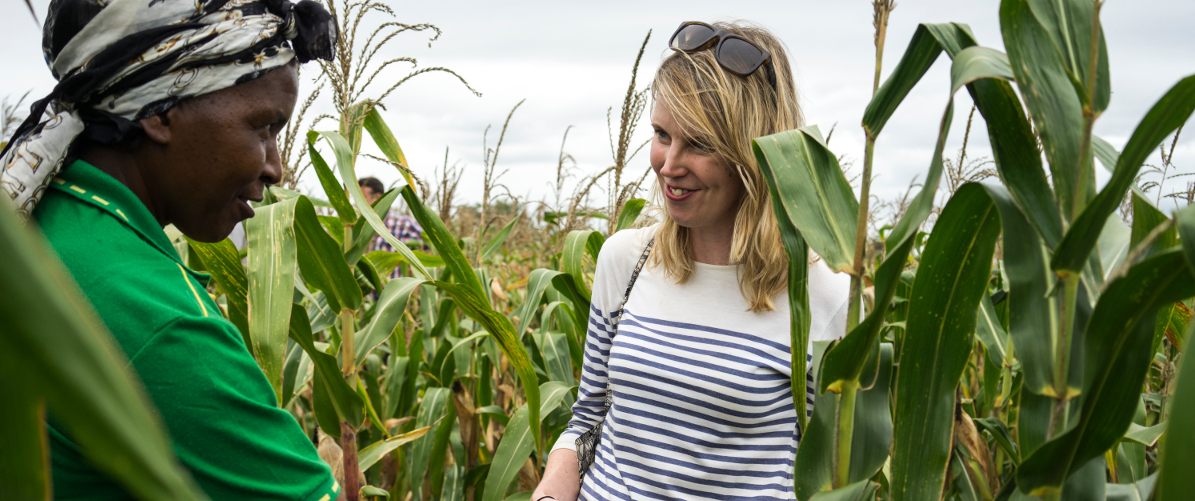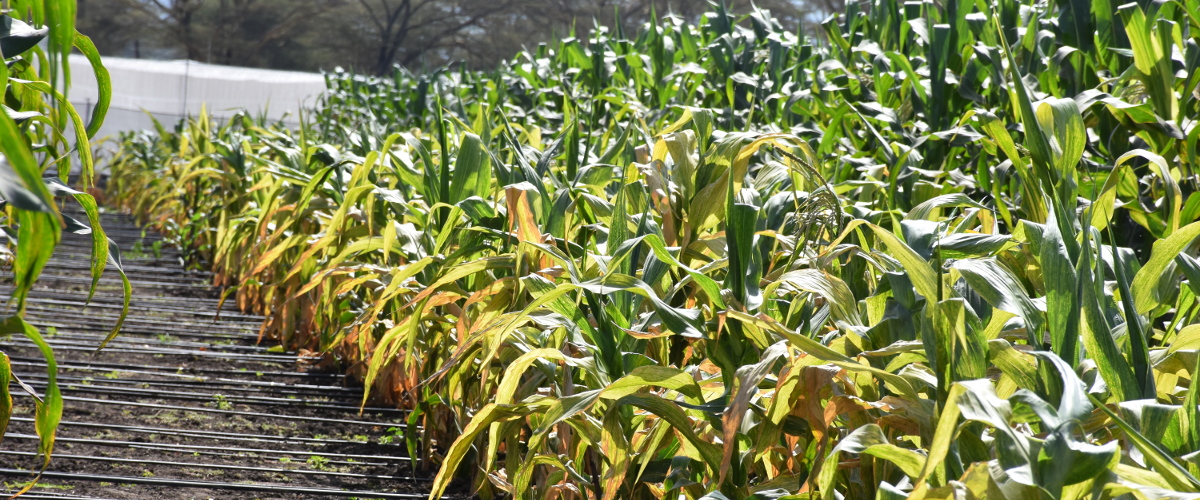- Latest STMA Bulletin is out
Read the latest news from the just concluded Stress Tolerant Maize for Africa (STMA) initiative. This issue highlights the impact the project has had on farmers in sub-Saharan Africa, how it has helped build resilience of Africa’s smallholder farmers and how the improved maize varieties will enable partners to reach farmers on time to plant and produce maize during the COVID-19 crisis in different countries in SSA. You will also get to read about farmers getting an opportunity ...
- List of STMA supported publications for sub-Saharan Africa for 2019
Amondo, E., Simtowe, F., Rahut, D.B., Erenstein, O., 2019. Productivity and production risk effects of adopting drought-tolerant maize varieties in Zambia. International Journal of Climate Change Strategies and Management 11, 570-591. https://doi.org/10.1108/IJCCSM-03-2018-0024
Awata, L. A. O., Ifie, B. E., Tongoona, P., Danquah, E., Jumbo, M. B., Gowda, M., Marchelo-D’ragga, P. W., Sitonik, C., & Suresh, L. M. (2019). Maize lethal necrosis and the molecular basis of variability in concentrations of the causal viruses in co-infected maize plant. Journal of General and ...
- Economic impacts of smallholder farmers’ adoption of drought-tolerant maize varieties
Highlights:
• Drought-tolerant maize variety is an adaptive response to climate variability.
• Adoption of drought-tolerant maize varieties increases crop yield.
• Adoption of drought-tolerant maize varieties increases market participation.
• Adoption of drought-tolerant maize varieties increases farm income.
https://doi.org/10.1016/j.landusepol.2020.104524
Abstract: Drought and high temperatures are major threats to sustainable food production and consequently the livelihoods of the majority of Africans who depend on fragile agricultural systems. As a response to these threats, climate-smart agricultural technologies, such as drought-tolerant maize (DTM) varieties, have been ...
- Seeing is believing: demo farms accelerate adoption of stress tolerant maize
Joshua Masinde
Over 400 farmers from Manyatta in Embu County were on February 7, 2020, invited to a demonstration farm to witness the performance of various high yielding, early to medium maturing, drought tolerant maize varieties. Such occasions aim to encourage them to adopt varieties whose traits they preferred the most.
Some of the farmers who showed up for the field day in Embu County on February 7, 2020. Image-Joshua Masinde/CIMMYT.
They were invited by the Seed Trade Association of Kenya (STAK), with ...
- The list of STMA-supported research publications from West Africa for the year 2019 is out
Melaku Gedil and Abebe Menkir. 2019. An Integrated
Molecular and Conventional Breeding Scheme for Enhancing Genetic Gain in Maize
in Africa. Published in Frontiers. Plant Sciences and accessible here
Adu, G. B., Badu-Apraku, B., Akromah, R.,
Garcia-Oliveira, A. L., Gedil, M., Awuku, F. J. 2019. Genetic diversity and
population structure of early-maturing tropical maize inbred lines using SNP
markers, published in PloS ONE, volume
14, number 4 and accessible here
Badu-Apraku, B., Talabi, A. O., Fakorede, M.,
Fasanmade, Y., Gedil, M., Magorokosho, C., Asiedu, R. 2019. Yield ...
- Scoring new drought tolerant CIMMYT lines in Kiboko 5 Sept 2019
CIMMYT breeders selecting new CIMMYT line candidates in stage 4, scoring hybrid entries according to their drought tolerance in Kiboko research station - 5 September 2019
CIMMYT breeders scoring DT maize in Kiboko 5 September 2019
CIMMYT breeder scoring DT maize in Kiboko
Suresh and Aparna ranking DT maize entries in Kiboko 5 Sept 2019
Cob not well covered by husk is prone to attacks Kiboko Sept 2019
Stay green entry 52 DT maize in Kiboko 5 Sept 2019
Entry 42 maize cob in Kiboko
Entry 42 ...
- Digital imaging tools make maize breeding much more efficient
Recent innovations in digital imagery and sensors, packaged in what plant scientists call high-throughput phenotyping platforms, save money and time by replacing lengthy paper-based visual observations of crop trials with real-time big data collection and management.
- Setimela P, Zaman-Allah MA, Gasura E, Cairns JE, Thierfelder T, Prasanna BM. 2018. When the going gets tough: performance of stress tolerant maize under conservation agriculture during the 2015/16 El Nino season in southern Africa.
Abstract: The 2015/2016El Niño was the most severe on record in southern Africa and was associated with drought and heat stress. To help farmers to cope with such extreme production constraints the International Maize and Wheat Improvement Centre (CIMMYT), has been developing multiple stress tolerant maize varieties through a rapid-cycle breeding strategy. These CIMMYT stress tolerant maize hybrids were evaluated using two types of trials. The first one comprised a regional on-farm trial with forty maize varieties (20 early-intermediate and ...
- New crop varieties that counter climate change: a best bet for farmers
Stress tolerant maize varieties have been named as one of the 10 best innovations for adaptation in agriculture to help smallholders improve food security and livelihoods while adapting to the impacts of climate change. Read More.
- Drought tolerant maize provides extra 9 months of food for farming families
A new study from scientists with the International Maize and Wheat Improvement Center (CIMMYT) shows that drought tolerant (DT) maize varieties can provide farming families in Zimbabwe an extra 9 months of food at no additional cost. Read More.


